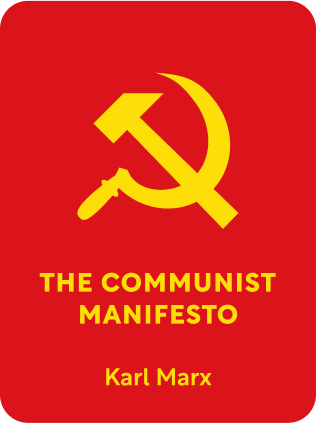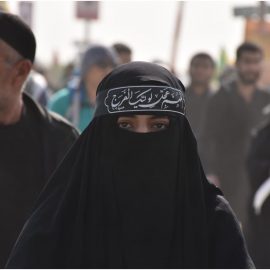

This article is an excerpt from the Shortform summary of "The Communist Manifesto" by Karl Marx. Shortform has the world's best summaries of books you should be reading.
Like this article? Sign up for a free trial here .
What are the principles of Communism? What do they mean and how would they work in a Communist society?
The principles of Communism revolve mainly around taking wealth and power from the bourgeoisie class and giving it to the Proletariat, the working people.
Read more about the principles of Communism and what they mean.
The Principles of Communism: The Path Forward
The principles of Communism rely on the fact that the Bourgeoisie control land and wealth that they did not earn, and instead got off the labor of workers, or the Proletariat. Communists believe that giving power to the laborers and abolishing the systems of wealth held by the Bourgeoisie creates a more equal society. The principles of Marxism rely on the idea of giving the Proletariat power.
Once the Proletariat have acquired political power, they’ll take the following ten measures. (Some of the measures along this path are unsustainable but unavoidable. Problems will iron themselves out naturally.) These are the principles of communism and the steps that would make a Communist society possible.
- Abolish the ownership of land and put all land to public use. This will eliminate oppression and class conflict.
- Create a progressive or graduated income tax. This will spread wealth more equally among all members of the population and eliminate classes.
- Abolish inheritance. This will eliminate wealth being held by a few instead of distributed among everyone.
- Take away the property of emigrants and rebels. Emigrants who are living abroad and left possessions behind obviously aren’t currently using them, so they can be better used by the general population. Rebels who oppose the Proletariat also shouldn’t be allowed to have property.
- Create a national bank using state capital. Private banks simply hold money. A national bank could use money to improve social conditions.
- Put the state in charge of communication and transportation. If the state controls these things, rather than an oppressor, everyone will have access to them.
- Expand and improve the state’s control of infrastructure and land. Currently, people aren’t making good use of resources. The state can allocate resources in a way that most benefits everyone.
- Require everyone to work and require working conditions to be decent. This will result in everyone contributing to society.
- Decentralize jobs from cities by combining agriculture and manufacturing. This will reduce geographic inequity and make better use of resources.
- Abolish child labor, create public schools, and give all children free education. This will improve the lives of children.
(Shortform note: We’ve added explanations of each measure, based on widely-held interpretations.)
Political power only exists to allow one class to oppress another. The Proletariat will only briefly be the ruling class. After the above measures have been carried out and all class distinctions fade, political power will cease to exist.

———End of Preview———
Like what you just read? Read the rest of the world's best summary of Karl Marx's "The Communist Manifesto" at Shortform .
Here's what you'll find in our full The Communist Manifesto summary :
- How the oppressors and the oppressed have been in conflict for all of human history
- How the communists planned to overthrow the ruling class and put in place a fairer system for all
- Five key criticisms of Communism, and how Communists respond






